Are you facing issues with copyright violations and unsure how to tackle them? Crafting a well-structured letter can be your first step towards reclaiming your rights and addressing the infringement. In this article, we'll guide you through a simple yet effective template for a copyright violation claim letter. Read on to discover how to protect your creative works and ensure your voice is heard!
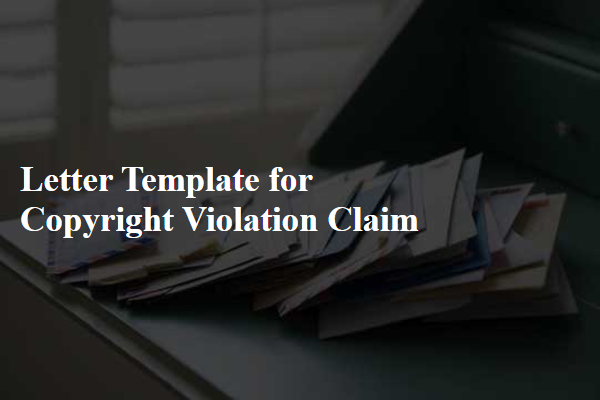
Identification of copyrighted work
Infringement of digital content can significantly harm creators, particularly in the realm of visual art, literature, and music. Under U.S. copyright law, original works (protected under Title 17 of the United States Code) permit exclusive rights to their creators. A copyrighted work may include unique graphics (such as illustrations, photographs, or designs), original literary texts (ranging from novels to screenplays), and musical compositions (encompassing both scores and lyrics). Noteworthy copyright registration numbers (obtained from the U.S. Copyright Office) serve as legal proof of ownership. Identifying the specific URLs (Uniform Resource Locators) of unauthorized reproductions on platforms like social media or websites is crucial for the enforcement of rights. The date of the infringement occurrence should also be mentioned, alongside any relevant correspondence or communication with the infringing party.
Infringing material specifics
Infringing materials, such as photographs or written content, can appear on online platforms without permission, violating copyright laws established under the Berne Convention for the Protection of Literary and Artistic Works. Specifics of infringing materials, including original works registered with the U.S. Copyright Office (Registration Number TX-123456) or images owned by a photographer like John Smith (Image ID: 7890), can be identified through URL links to unauthorized reproductions on websites like www.example.com. Clear documentation of ownership demonstrates violation, emphasizing the need for immediate action to remove the infringing content to protect intellectual property rights.
Ownership confirmation
The ownership of creative works is crucial for protecting intellectual property rights, ensuring that authors receive recognition and financial benefits from their creations. Copyrighted materials, such as music, literature, and visual art, require vigilance to maintain their legal protections. Under the U.S. Copyright Law (Title 17 of the United States Code), it is essential to provide a detailed claim to affirm ownership if infringement occurs. The infringing party, often operating online, may unlawfully use an artist's work without permission, leading to potential financial loss. Documenting original creation dates, registration numbers, and evidence of unauthorized use can strengthen claims. Filing a formal complaint with platforms hosting the infringing content can initiate a resolution process while promoting fairness in the creative industries.
Request for action/removal
Unauthorized use of copyrighted material can lead to significant legal repercussions. Images, videos, or written content without consent violate intellectual property laws, risking fines or lawsuits. Major platforms like Facebook, Instagram, and YouTube implement stringent policies to protect creators' rights. Copyright owners must document infringement details (date, location, nature of infringement) when filing claims. Initiating a formal takedown request under the Digital Millennium Copyright Act (DMCA) requires accurate identification of the original work, proof of ownership, and specific URLs of infringing content. Compliance with copyright law fosters respect for creative contributions in digital spaces.
Contact information for response
Efficient copyright violation claims require delivering precise contact information. For instance, a claim presented to an online platform might include specific contact details such as a business email address (e.g., copyright@yourdomain.com), phone number (e.g., +1-800-123-4567), or a physical mailing address (e.g., 123 Main St, Suite 456, Cityville, State, Zip Code). These details ensure swift communication with the copyright owner, facilitating an effective resolution to the infringement issue while complying with Digital Millennium Copyright Act (DMCA) requirements. Clarity in contact information enhances response efficiency, helps prevent legal misunderstandings, and promotes timely rectification of copyright-related disputes.

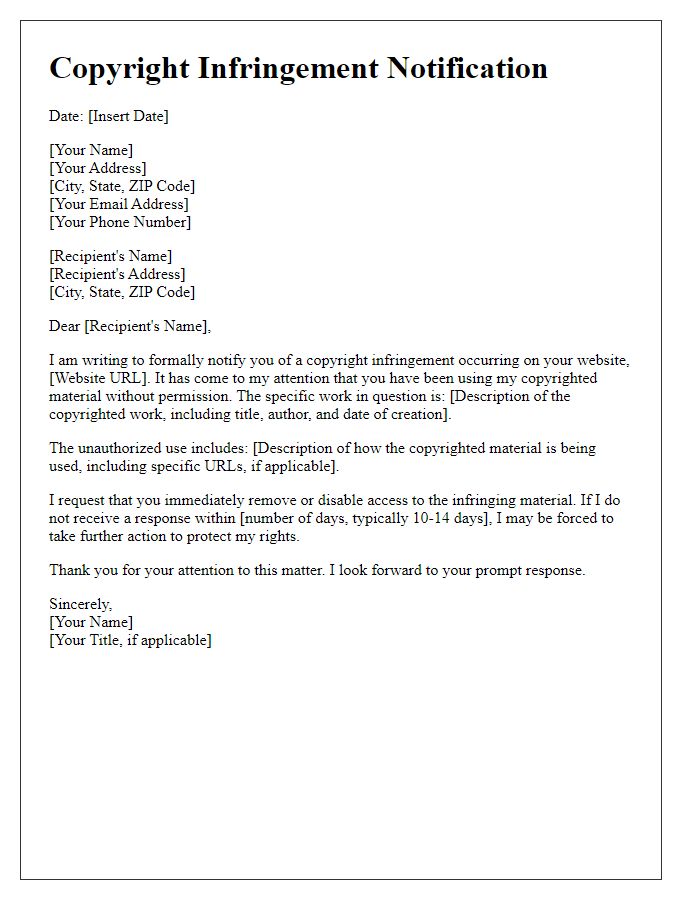
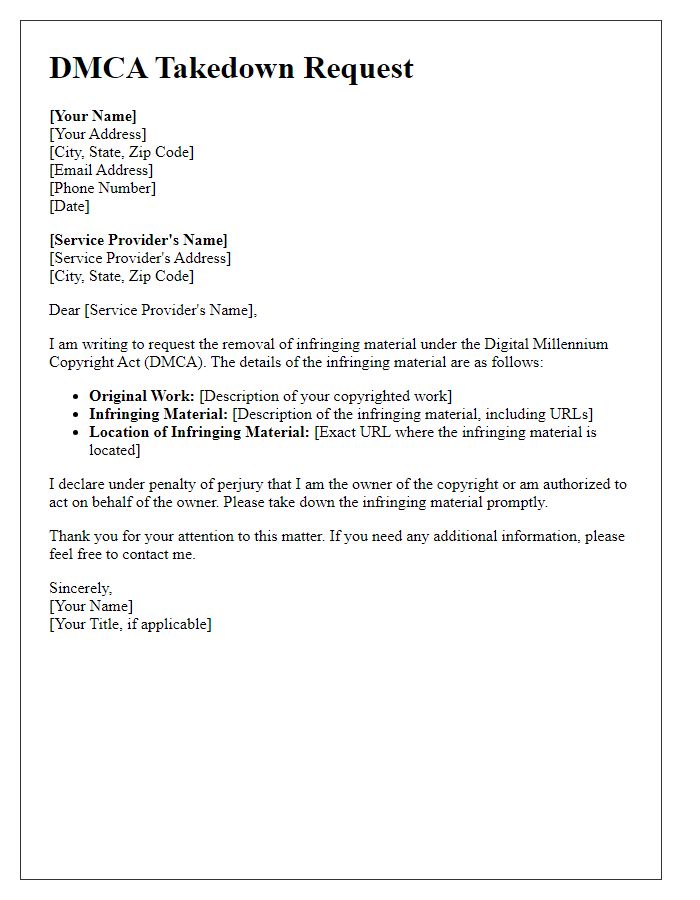
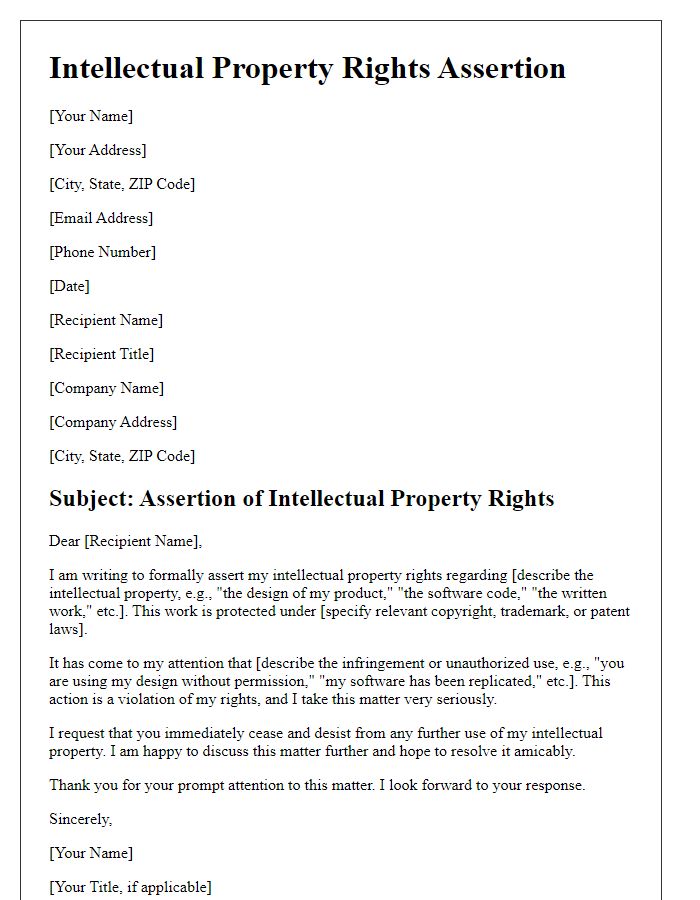
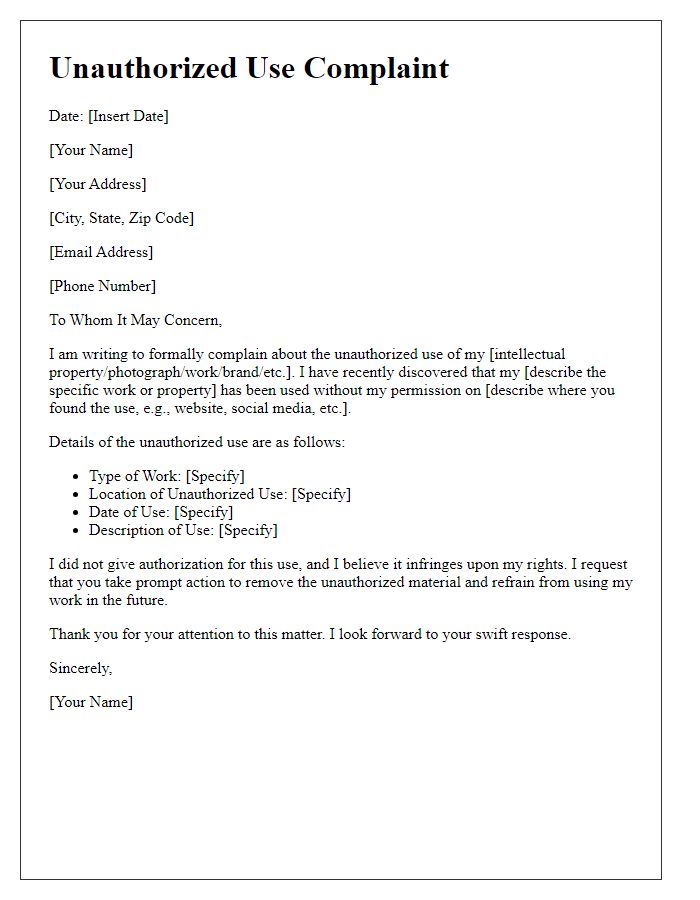
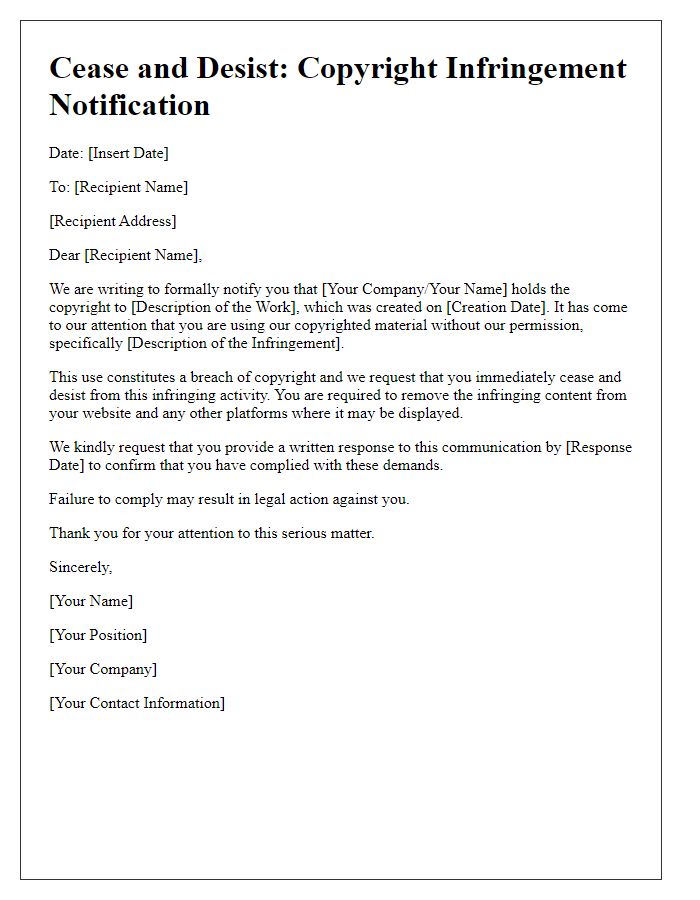
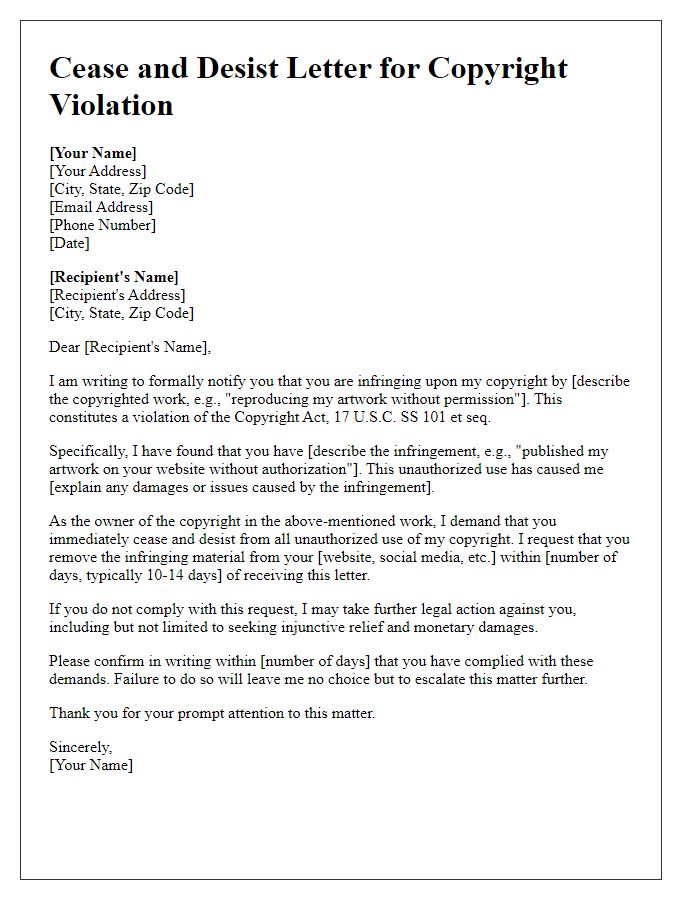
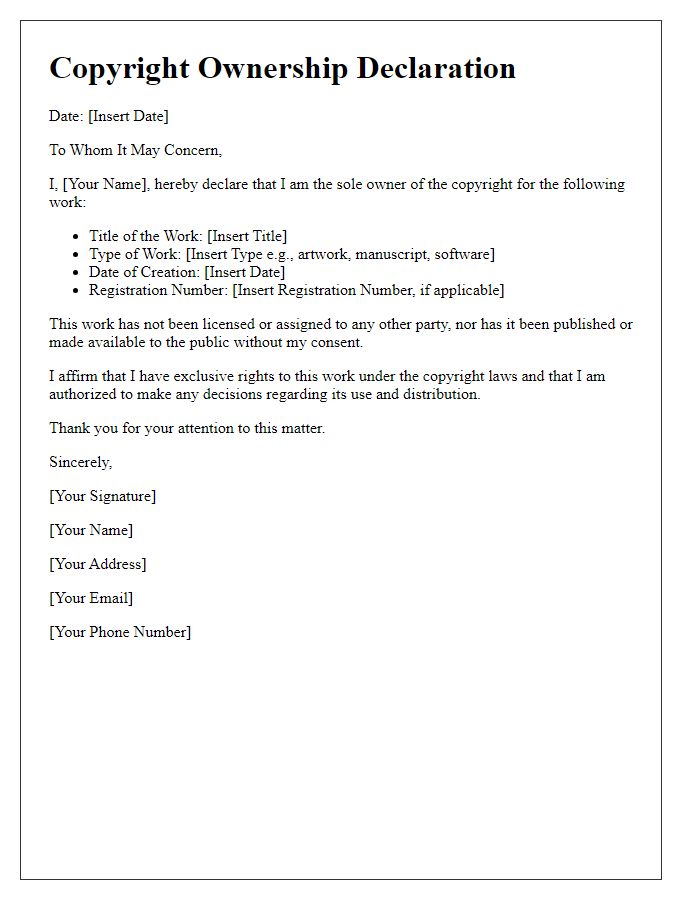
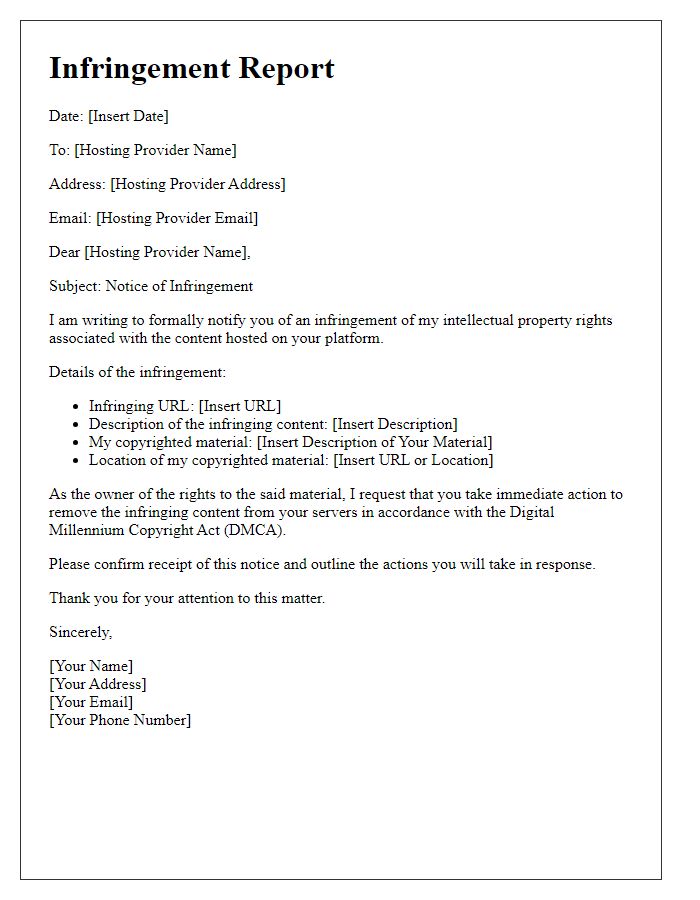
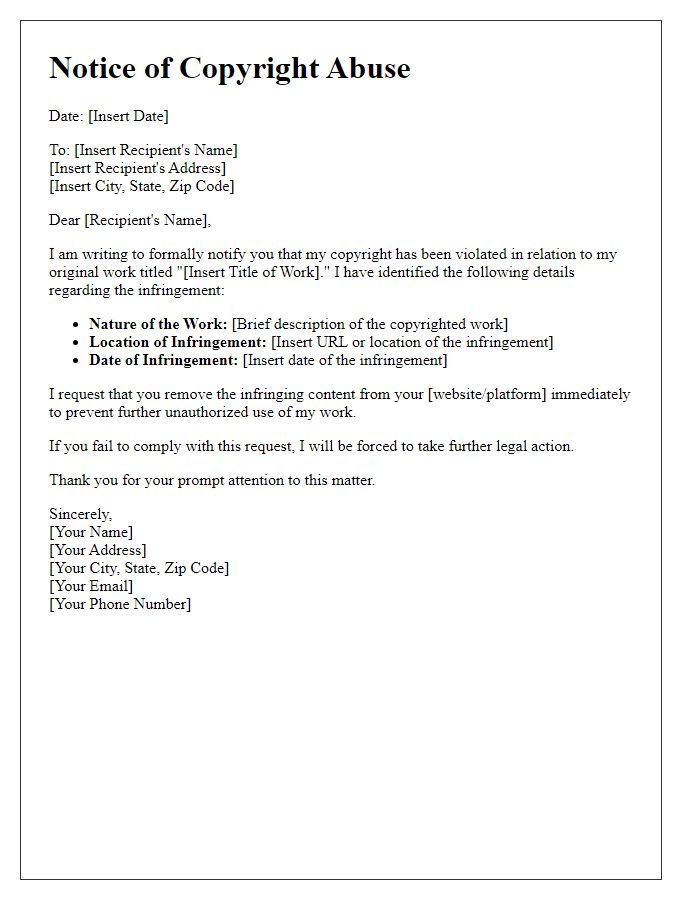
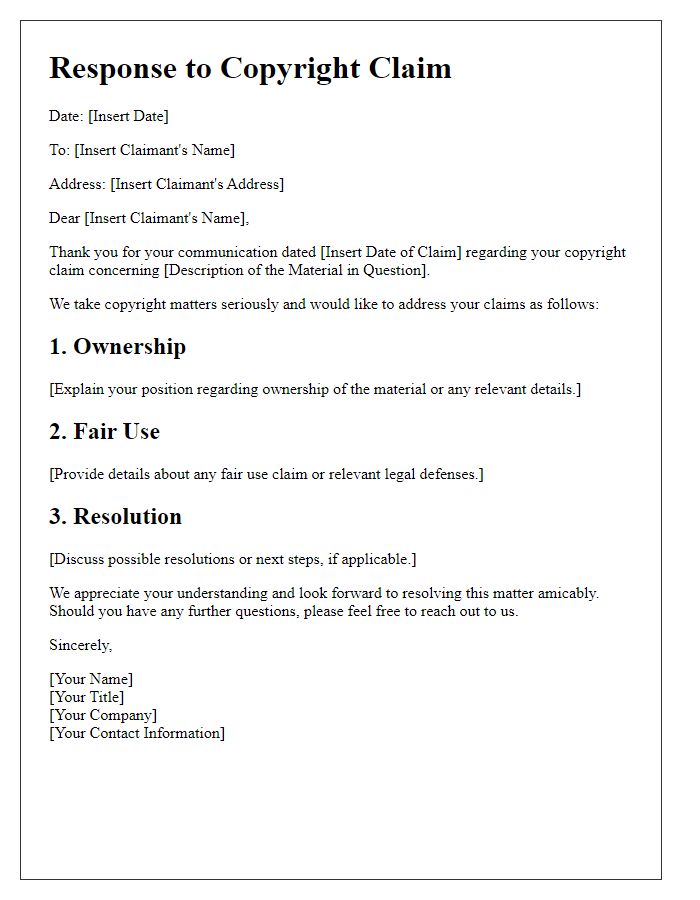

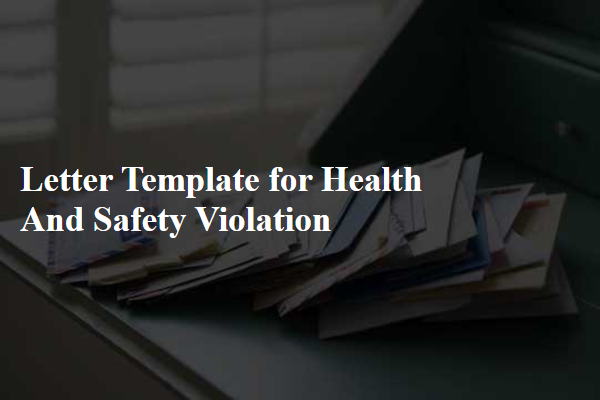
Comments